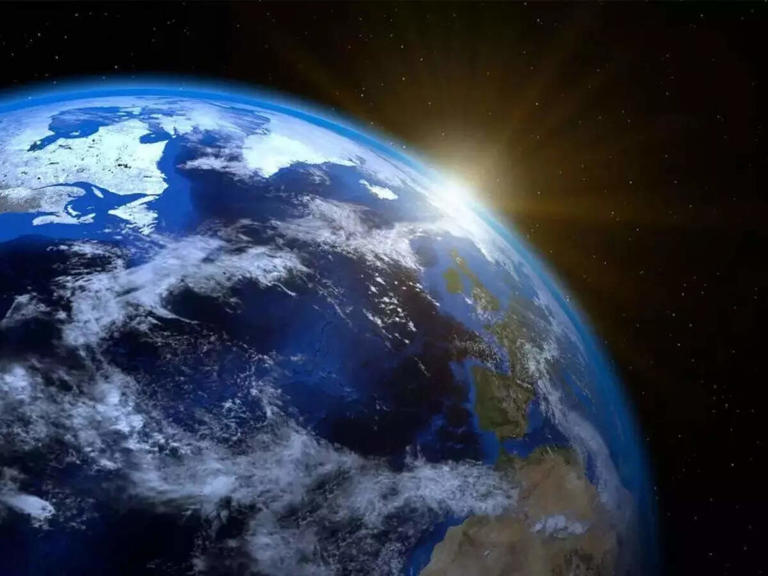Earth’s Faster Spin May Lead to First-Ever Leap Second Removal by 2029, Say Scientists
Earth’s Rotation is Speeding Up: What It Means for Time and Why Scientists Are Monitoring It Closely
In a fascinating twist of planetary behavior, scientists have confirmed that Earth is spinning slightly faster than it used to, leading to marginally shorter days. This acceleration in Earth’s rotation has been observed since 2020, and it’s enough to potentially warrant the removal of a leap second by 2029—an unprecedented adjustment in timekeeping. For decades, the common understanding among researchers has been that Earth’s rotation is gradually slowing down over time due to tidal friction and other long-term factors. However, recent data collected by the International Earth Rotation and Reference Systems Service (IERS) reveals a consistent increase in Earth’s spin rate over the last few years. This new pattern has sparked significant interest and ongoing study among geophysicists and astronomers worldwide.
Each day on Earth is defined by one full rotation, which takes approximately 86,400 seconds. But this number is not fixed. Earth’s rotation can be influenced by various natural factors, including ocean tides, volcanic activity, earthquakes, and internal geodynamic changes. Historically, these forces have contributed to a gradual deceleration of Earth’s spin. During the age of the dinosaurs, for instance, days were only about 23 hours long, and even in the Bronze Age, each day was about half a second shorter than it is today. These are slow changes occurring over millions of years. However, the sudden and measurable increase in rotation speed since 2020 is something scientists did not anticipate.
In a report by timeanddate.com, researchers have projected that this pattern will continue into 2025. Specific dates, such as July 9, July 22, and August 5 of that year, are expected to have the shortest days. On August 5, in particular, Earth’s rotation could complete 1.51 milliseconds faster than the standard 24-hour cycle. This might seem minuscule, but it is enough to impact our ultra-precise atomic timekeeping systems, which depend on synchronization with Earth’s actual spin. If this continues, we could witness the subtraction of a leap second from our clocks by 2029—something that has never happened before in history. Leap seconds have only ever been added to align atomic clocks with Earth’s slower spin, so this would be a historic reversal.
Despite this unusual development, scientists urge the public not to worry. According to experts, while the acceleration is significant from a scientific standpoint, it is still a very small-scale change. Most researchers, including Leonid Zotov from Moscow State University, agree that these fluctuations are natural and not a sign of any catastrophic shifts. Zotov, who co-authored a 2022 study on the subject, has acknowledged that no current model fully explains the sudden speed-up. Many scientists suspect that the phenomenon could be linked to deep processes in Earth’s core. While changes in atmospheric pressure, melting polar ice caps, and shifting land masses could also have some effect, none of these explanations alone accounts for the entire pattern.
Ultimately, this unexpected acceleration in Earth’s rotation is a compelling reminder that our planet is dynamic and ever-changing. Time, as we understand it, is tied closely to Earth’s motion, and even slight shifts can ripple through our systems of measurement and perception. Though the potential removal of a leap second in 2029 won’t affect daily life, it symbolizes a rare moment where humanity must adapt to the natural rhythm of the planet itself.
For video news, visit our YouTube channel THE OLIGO.

